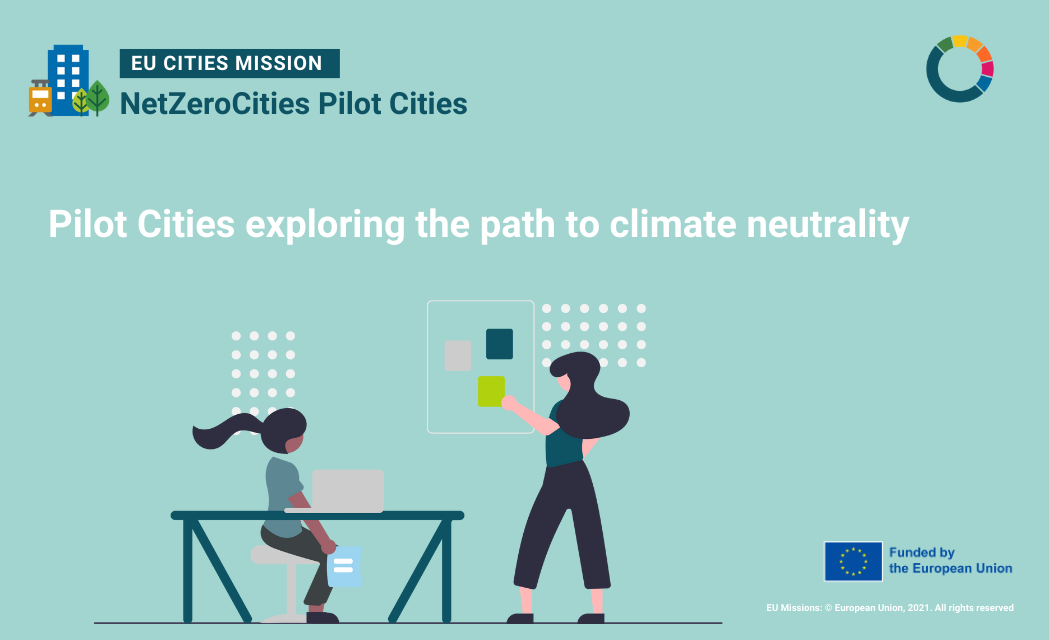This article is part of a series exploring the NetZeroCities Pilot Cities Programme, which includes Multi-City Pilot Cities, and integrates non-Mission Cities communities across the EU. Currently, a new Call for Pilot Cities is open, marking the next phase of exchange underpinning the ambition of the Cities Mission.
Pilot City activities are taking shape across the 53 cities selected to take part in the NetZeroCities Pilot Cities Programme – and they represent a wide array of communities at different phases of their journey towards climate neutrality. In addition to non-Mission Cities communities and Multi-City Pilot Cities, the following cities will test out innovative new approaches in making the climate transition a reality. Even more Pilot Cities will soon join this group: the current open Call for Pilot Cities will further expand the cohort of cities exchanging on their latest initiatives to decarbonise.
Bristol
Bristol has already laid the groundwork for climate neutrality with its Community Climate Action Plans, as well as the One City Climate Strategy. What comes next is its Net Zero Investment Co-Innovation Lab, which will “co-create the governance structure, mission, and vision” to bring these strategies to life. Centring the need for new financial tools, the lab will oversee the creation of a Citizen Community Climate Investment Scheme, a Net Zero Venture Fund, and a Carbon Multiplier Fund. A Bristol Climate Finance Advisory Group will convene to guide these new financial instruments as they support the carrying out of Bristol’s ambitious plans.
Budapest’s New Climate Agency
In order to fill a gap in energy efficiency policy at the national scale, Budapest’s Pilot City activities focus on creating a sustainable, long-term energy efficiency incentive programme. To put this into action, Budapest plans to create a Super ESCO (Energy Service Company), which will be designated as a Climate Agency. This agency will work with banks and financial institutions to create incentives and financial products in energy-efficient upgrades – all to support people who are unable to invest in refurbishing their homes. This model for supporting the scaling up of energy-efficient solutions is one that can be taken up by many cities across Central and Eastern Europe, given shared challenges.
Cluj-Napoca Builds a Platform for Rehabilitation of Apartment Buildings
Cluj-Napoca’s Pilot City activities, called a Blueprint for Net-Zero Apartment-block Neighbourhoods, also focus on local housing stock, in particular multi-family apartment buildings. In the recent past, upgrades and rehabilitations of features like insulation have been insufficient or incomplete in many Cluj-Napoca neighbourhoods, only marginally improving energy performance. The City’s response is a multi-faceted one, matching “integrated multi-sectoral planning at the neighbourhood level, detailed solutions for the redesign of public spaces with a focus on sustainable mobility, public lighting, circular economy and food waste prevention” with new stakeholder engagement in the form of a local NetZeroCities Coalition. Cluj-Napoca will create a new platform to share the results of this process, not only across local neighbourhoods, but with other cities across the EU.
Dijon “Massifies” the Climate Transition with a New Governance Approach
Scaling up is the name of the game for Dijon, which is using the support of the Pilot Cities Programme to “massify” its decarbonisation efforts through the lens of systemic innovation. Cutting across emission domains and areas of expertise, Dijon will create a “multi-lever and coordinated approach” to urban mobility and buildings-sector emissions called a Multi-stakeholder Operator for Massification. As highlighted in a recent podcast episode, this new governance innovation will centralise and take on the operations aspects of climate-neutrality efforts across the city.
Guimarães Connects Residents with the Climate Transition
In what Guimarães is calling a “social experimental laboratory,” the City is focusing its activities on urban regeneration, cultural heritage, creative industries, and social infrastructure. Under a Citizen Pact, residents will be brought into the process of co-creating new strategies across all sectors, bringing together diverse topics: mobility and public space improvements; renewable installations and energy efficiency upgrades in heritage buildings, among others. While taking a comprehensive but targeted approach to its main emission domains, Guimarães is also creating a new model for participatory change, testing out a new way to pilot its commitments to the climate transition.
Kozani Heats Up on Transforming the Heating and Cooling Sectors
Kozani’s “NEUTRON” Pilot is ambitious, aimed at the “whole transformation of the electricity, heating and cooling sector,” with a focus on buildings. Taking methodologies forward to transition to a more efficient and less carbon-intensive system, Kozani will explore technologies like district heating, the Green Heat Module, Energy-from-Waste schemes, and Digital Twinning in order to fast-track its building stock as part of its move to climate neutrality.
Shifting Gears in Lahti
After examining planned initiatives to curb emissions, Lahti, Finland sees a modal shift in urban mobility as necessary to get to climate neutrality – meaning that residents need to cut down inner-city commutes in favour of public transport, walking, or cycling. To do so, Lahti is working with workplaces and employers to make sustainable commuting a reality, bringing them into urban mobility planning for the first time. With workplace input, Lahti will get a better feel of the state of play for public and active transport, analyse barriers, and test out new strategies in select organisations. From there, Lahti will scale this up to a growing local district, using the results of these tests to shape a district-scale mobility plan – one that residents hope will pave the way for a transformation at the city-wide scale.
Energising Leuven’s Climate Transition
Leuven, Belgium is also targeting its building sector, aiming to reduce energy use particularly in heating. Leuven already has an energy strategy in place – and now aims to scale up to new neighbourhoods and districts. In so doing, Leuven anticipates creating new tools and approaches to governance, policy, and finance. From there, Leuven predicts that complementing these efforts with retrofitting and renewable energy installations could triple the impact seen so far from decarbonisation efforts in heating alone.
A New Energy Community for Liberec
Liberec aims to simultaneously boost stakeholder engagement with climate change issues while also improving uptake of renewable energy at the local scale. The Energy Community Liberec project is already linking activities in energy use and local transportation, the former focused on community energy development and the latter on creating a roadmap to move towards electrification. Liberec’s Pilot City activities will navigate everything from the landscape of available technologies, contractual issues, and other elements involved in making such a project come to life.
Limassol’s Living Lab
Limassol’s Lc3 “Lemesos City Cooling Challenge” takes a living lab approach to reduce energy consumption, with a special focus on cooling. Starting with new solar installations, and the integration of carbon sinks into the urban environment, Limassol will improve the local microclimate, enhance public spaces, and demonstrate small-scale renewable energy sites. At the same time, the City will experiment with new financial instruments, creating a path towards the further scaling-up of solutions seen as transferable to other cities dealing with extreme heat.
Malmö
Building off existing work on emissions analysis and baseline studies, Malmö aims to take this crucial context forward into an implementation phase. Having identified seven key areas in which the City will carry out its transition, Malmö is looking to make more targeted plans for 2023-2026. For Malmö, this means mobilising stakeholders, addressing key barriers, creating new community engagement models, and creating roadmaps for each part of the local climate transition alongside an overarching investment plan.
Nantes’ Citizen Challenge
Nantes is taking climate action down to the household level, looking into how the City can “accompany households towards a low-carbon lifestyle,” and scale up individual action. Through a citizens’ challenge for carbon neutrality, Nantes Métropole will get a better look at which policy changes will help residents to reduce their emissions – blending both individual and systemic views of the climate crisis.
Turku as the Next 1.5-degree City
Turku’s 1.5-degree City project will create a brand-new Climate Situation Room, in recognition of the urgent need to scale up systemic action across sectors. With a new digital platform, the Situation Room will bring together corporations, local stakeholders, and municipal partners for “knowledge-based decision making” and build on the growing Turku Climate Team network that has convened residents and companies since 2018. From there, research and pilot activities will focus on using behavioural science to bring local climate action into its next, accelerated phase.
Umea Becomes a “North Star”
Both organisational and individual behaviours are at the centre of Umea’s Pilot City activities, which takes aim at finding ways to govern the networking and collaboration required for an effective and inclusive climate transition. Bringing climate to the centre of governance, Umea’s new system will help circumvent organisational “lock-in” that can, at times, limit the participation of different stakeholder groups in making climate neutrality a reality.
The Next Phase of Piloting the Transition
The NetZeroCities Pilot Cities Programme is a critical part of bringing the Cities Mission forward – putting the testing of new approaches to climate neutrality at the forefront, and connecting cities along the way. Not only will the Pilot Cities Programme portfolio be further expanded with the call for Pilot Cities Cohort 2 (2023) now open to Mission Cities, but it will also foster collaboration and hand in hand work with the selected Twin Cities to replicate systemic transformation, transfer knowledge, and best practices.





